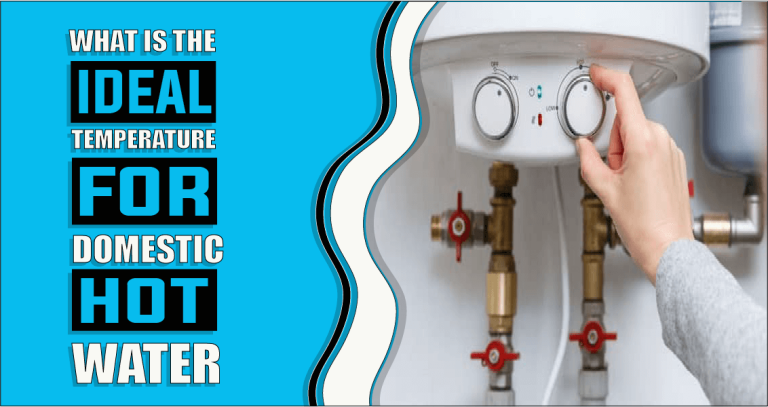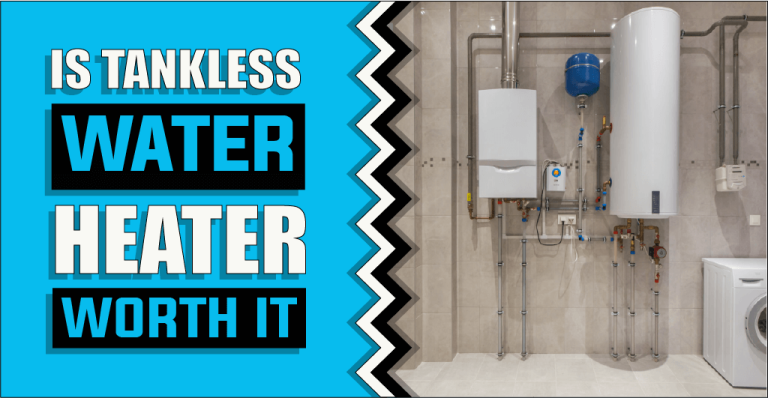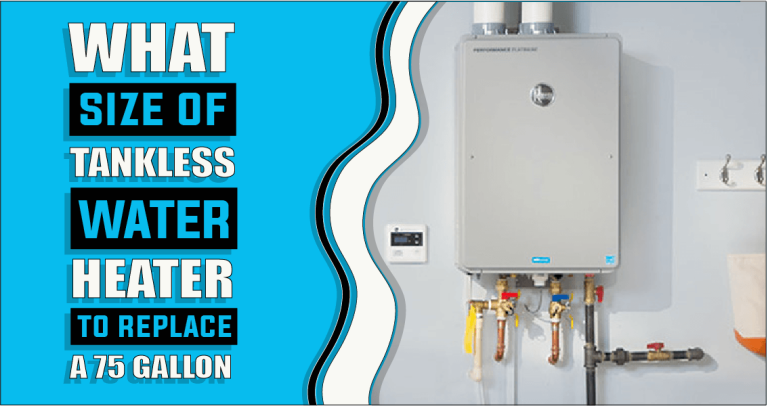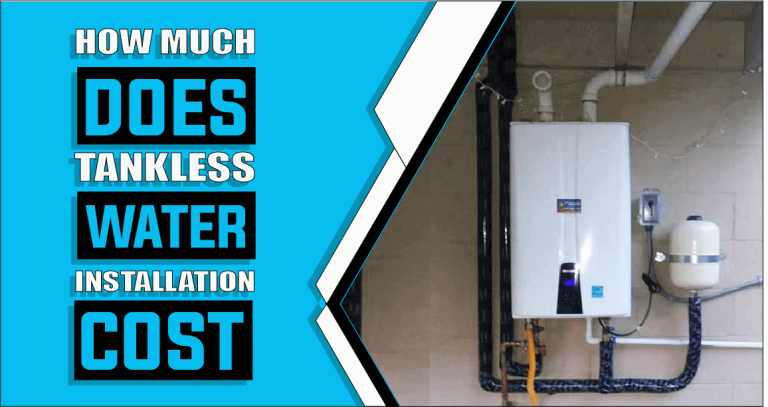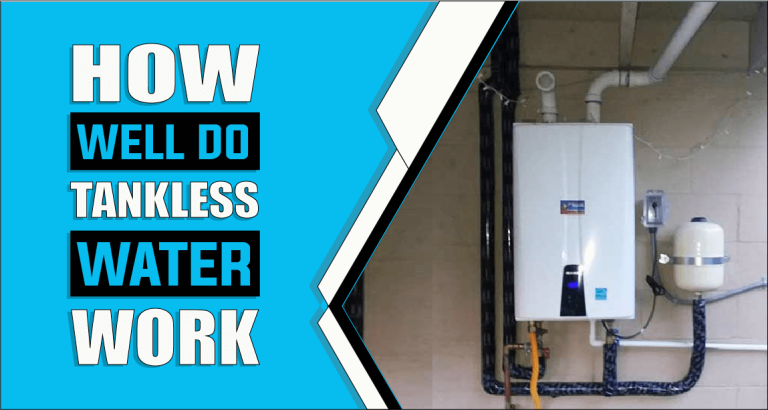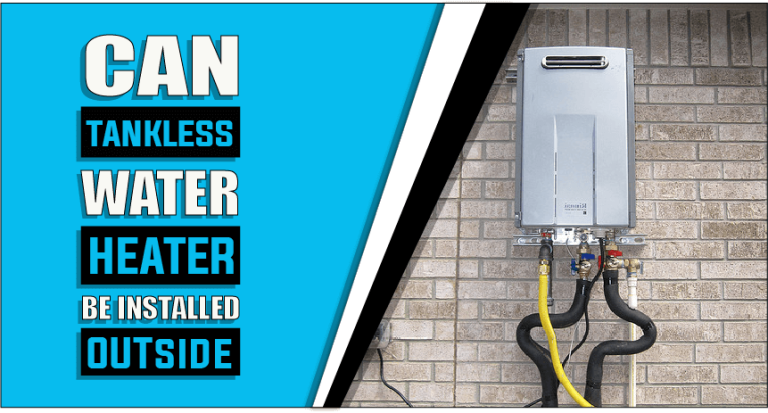What Causes Hot Water Heater To Leak – The Truth Reveals
When you experience water pooling around the base of your water heater, it’s normal to be a little frustrated and confused. Because a water heater leak can frequently have very negative effects on a home. If the leaks continue to spew water for a long time, the water damage will ruin the flooring, the walls, and any priceless items. Too many homeowners are dealing with their heater breaking and leaking but are unsure of its origin or root cause. In this blog post, we’ll discuss what causes hot water heaters to leak so you can better understand how to prevent these issues from cropping up again and enjoy your long hot showers with peace of mind. For more information on the causes of problems with your water heater, keep reading!
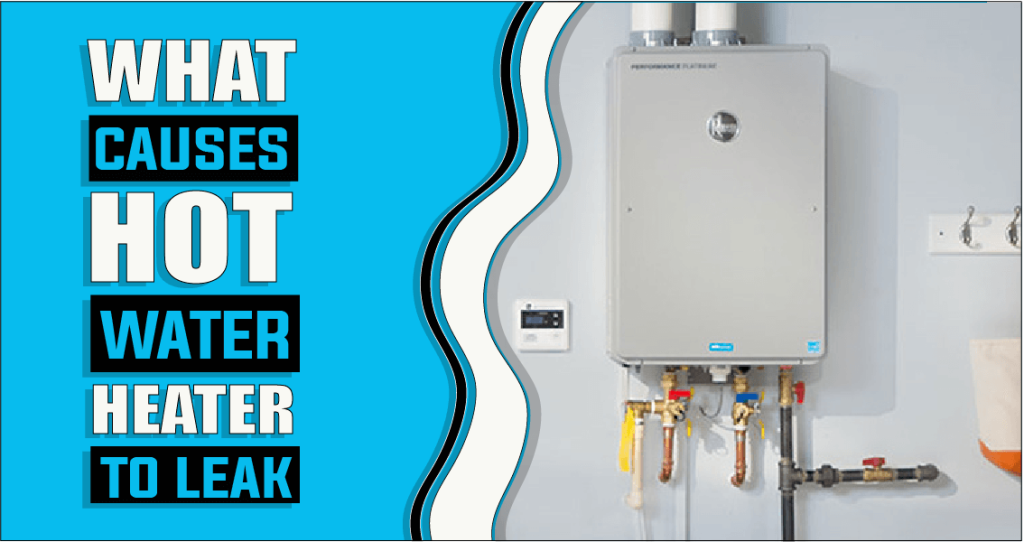
Exploring Why do Hot Water Heaters Leak?
Water heaters may leak for some reasons, including poor installation, corrosion from aging, or broken valves. If the water heater is not installed properly or plumbed correctly, it can cause leaks in the piping joints and connections. Over time, mineral deposits can build up on the inside of the tank, leading to corrosion that causes holes to form and leak. Loose or damaged parts like valves and fittings can also cause water heaters to leak.
Homeowners should periodically check for leaks and be alert to any changes in how their water heater is operating. Otherwise minor issues could lead to major damage from leaks if left unchecked.
Regular maintenance can help prevent common problems while ensuring that any existing issues are quickly identified and repaired before they worsen.
Common Causes of a Hot Water Heater Leakage
Causes of water heaters leaks are varied in intensity. Sometimes issues are minor and simple to handle and a homeowner can fix them independently in the interim, the problem can be serious enough to require a new water heater. So calling a plumber to help you diagnose problems is a smart idea to be sure the right course of action is taken.
The following is a list of the most typical reasons for water heater leaks.
1: Old Tank
A water heater that is old and has been in use for more than 10 years is more prone to leakage. Over time, metal tank parts can begin to corrode and weaken which can lead to rusting of the tank walls and a subsequent leak. If the corrosion is extensive enough, it can cause a hole in the tank wall which will allow water to escape.
2: Faulty Temperature and Pressure Relief Valve
A water heater’s temperature and pressure relief valve serve as an emergency shut-off device if either the temperature or pressure inside the tank rises above a certain point. If this valve is stuck open due to malfunction or some other issue, it can cause water to continuously leak from the water heater into your home.
3: High Water Pressure Levels
If your home’s water pressure system has become unbalanced, meaning there is too much pressure being put on certain pipes then this could cause leakage in your water heater. High-pressure levels will increase stress on all components including joints and valves which could lead to failure and eventual leakage.
4: Corrosion and Rust Accumulation
Corrosion and rust accumulation due to age and mineral buildup can also cause hot water leakage. Minerals like calcium and magnesium can accumulate over time and cause corrosion inside the tank, which can lead to leaks. The mineral buildup also affects the efficiency of the tank as it reduces its ability to heat the water efficiently.
5: Worn-out Sacrificial Anode Rods
Another common cause of water heater leakage is worn-out sacrificial anode rods. These rods are placed in the tank as they act as a sacrificial metal that will corrode before other metals within the tank and protect them from corrosion. Over time, however, these rods can become corroded themselves which leads to leaks in the tank.
6: Cracked or Broken Water Heater Tanks
In some cases, a water heater leak can be caused by cracks or breaks in the tank itself. This usually occurs when too much pressure builds up inside of the tank due to temperature increases or because of wear and tear over time which can result in weak spots forming along walls or seams. If these areas get cracked or broken then it will lead to leaks in your water heater that need immediate attention from professionals as failure to do so could lead to further damage being done throughout your home.
7: Improperly Connected Pipes and Valves
When the pipes and valves are not properly connected, it can cause a leak in the system that may result in water spilling onto the floor or causing damage to other parts of the home. It is important to ensure that all pipes and valves are correctly connected before attempting to use the water heater. This will help to prevent any leaks from occurring.
8: Faulty Installation or Poor-Quality Construction Materials
One more cause of a water heater leakage is faulty installation or poor-quality construction materials used in its construction. If an inexperienced person attempts to install a water heater without fully understanding how it works, they may make mistakes that could result in a leak developing. And if low-quality materials are used during the construction process, they may not be able to handle extreme temperatures or pressures, resulting in them becoming damaged over time which can lead to a leak occurring.
9: Poor Maintenance
Poor maintenance can also be the reason for a water heater leakage. Over time sediment builds up at the bottom of the tank which needs to be regularly drained off for your water heater to remain efficient and reliable. If this sediment accumulates over time but never gets drained off it can result in decreased efficiency and create extra strain on your system resulting in a potential leak developing.
10: Thermal Expansion
A water heater that is exposed to high-temperature changes can cause it to develop leaks due to thermal expansion. As the water inside of the tank heats up, it expands, which increases the pressure inside of the tank. If this pressure is not released, then it can cause small cracks and leaks within the walls of the tank. Additionally, on days when there are drastic temperature swings between hot and cold temperatures, these fluctuations can create more stress on the components of the tank and weaken them over time.
11: Extreme Weather Conditions
Hot water tanks are especially vulnerable during times when there are unusually harsh weather conditions such as high winds or heavy rains that can put extra strain on their components, leading to wear and tear over time. The combination of these extreme weather events with fluctuating temperatures creates a perfect storm that puts excessive strain on the parts within a water heater, leading to eventual leakage due to cracks or damaged seals.
12: Natural Disasters
Earthquakes, hurricanes, and other natural disasters can have devastating effects on a water heater’s pipes and tanks. Severe shake motions from earthquakes can cause cracking or breakage in piping material leading to leaks. Hurricanes often bring about heavy rains that can damage roofing materials which may allow rainwater to seep into the home’s ceilings or walls where piping systems are located, again leading to leaks of hot water from the system.
Where that Pesky Water Comes from When your Trusty Water Heater Leaks
The location of the water heater leak might tell the plumber a lot about its origin. Homeowners should have a basic knowledge of what leak locations entail. This makes it easier for homeowners to direct plumbers where to look when they come, substantially streamlining the repair procedure.
1: Condensation:
First, ascertain whether the liquid you are observing is condensation or a genuine leak. It’s wise to check twice before calling a plumber because homeowners occasionally stress over nothing. Condensation occurs when the temperature difference between the tank and the room is large. For instance, condensation occurs when the tank is extremely hot and the surrounding space is cool. You can prevent condensation near your heater by using a dehumidifier if needed.
2: Undetermined Leaks:
It might not always be easy to pinpoint the precise source of a leak. If you notice any standing or pooling water near your water heater or wet spots on walls, ceilings, or furniture that cannot be identified as coming from another source like a roof leak, then it is likely an undetermined leak coming from your heater. . The most likely cause in this situation is excessive pressure. When there are pressure leaks, the water will seek any tiny opening to enter and stop when the pressure is dropped.
3: Bottom Leaks:
Leaks at the bottom of your tank are usually caused by faulty connections between pipes and tanks that come loose over time due to corrosion and normal wear and tear. To fix this kind of leak, you will need to inspect all connections leading into the unit and secure them properly with new gaskets if necessary.
4: Top Leaks:
Leaks at the top of a tank are typically caused by an overflow valve malfunctioning either through being clogged up with debris such as sediment or minerals from hard water build-up, or becoming corroded due to age or rusting out due to exposure over time. This type of malfunction often requires replacing entire parts such as overflow valves and other associated components.
5: Leaks in Tank:
Leaks inside a tank are typically caused by corroded metal surfaces due to mineral build-up over time which can slowly erode metal components within the heater itself leading to cracks in its sides and eventual leaks through those cracks into surrounding areas. They may not be easily noticed until significant damage has already been done.
Preventing Hot Water Heater Leaks
Most water heater leaks can be controlled by homeowners. By doing such simple actions they can stop leaks completely in little time. Finding the leak as soon as feasible is the most important step. The sooner the leak is discovered, the less it harms the water heater. However, homeowners who take preventative measures never experience leaks. Here’s how to stop leaks from water heaters:
1: Checkups by a Professional Technician
Regular maintenance checkups by a professional technician are essential for preventing water heater leaks. These examinations should be performed by a qualified technician at least once each year. This type of professional inspection can also help to ensure all parts are functioning properly, that all connections are secure, and that any new components or accessories meet safety requirements.
2: Keeping an eye out for signs of wear and tear
In addition to regular maintenance checkups, keeping an eye out for signs of wear and tear is important to prevent water heater leaks. Signs such as drips or leaks around the tank, rust on the pipes or fittings, and increased energy bills could be indicators of potential problems with the unit.
3: Installing Quality Parts
Installing quality parts that are designed to last longer is another key factor in stopping water heater leaks. Look for components from reputable manufacturers that have been tested for durability and reliability to get the most value out of your purchase.
4: Proper Insulation
Insulation helps keep heat in the unit more efficiently so you don’t waste energy unnecessarily while also reducing stress on the pipes themselves since they won’t have to withstand extreme temperature changes as often. Installing insulation correctly can help avoid damage or corrosion due to condensation build-up over time.
5: Inspecting the Unit and Connecting Pipes Regularly
Make sure you look for signs of corrosion or other physical damage on both interior and exterior surfaces during these inspections so you can catch any problems early on before they get worse. Additionally, checking for any loose connections between components can help reduce further risk of leakage if detected soon enough.
6: Done Necessary Repairs Quickly
Having necessary repairs done quickly when needed is also essential when it comes to avoiding water heater leaks since this will help minimize damage caused by leakage or other issues. The sooner repairs are made, the less likely it is that bigger issues will arise which could cost additional money in terms of replacement parts or even entire units if not addressed right away.
7: Being Aware of your Hot Water Heater’s Age
Finally, being aware of your water heater’s age is important so you can plan for replacement if necessary before major issues occur due to age-related wear and tear. As faulty parts become common sources of leakage over time as components become older through usage after many years of service life expectancy has been reached.
Frequently Asked Questions
To prevent more damage, it’s critical to inspect and fix the water heater as soon as a leak is found.
Indications of a water heater leak include drips or leaks around the tank, rust on the pipes or fittings, and increased energy bills. These are all signs that should be inspected by a professional technician.
Water heaters may leak for some causes, such as broken components, poor installation, or normal aging wear and strain.
No, it is not recommended to use a water heater that is leaking as it can cause further damage. It is essential to have a qualified technician examine and fix the appliance as soon as possible.
Yes, it is recommended to turn off the water heater if it is dripping as this could be an indication of a possible leak or another underlying issue. It’s best to have the water heater checked by a professional technician as soon as possible.
The longevity of water heaters, once they start leaking, will vary depending on the degree of damage and the age of the unit. It’s important to have your water heater inspected regularly to identify any potential problems before they become major issues that may require replacement.
Water heater leaks are most usually caused by the drain valve, which is found at the base of the tank. Other sources can include connections between components, loose fittings, and corrosion on the pipes.
It’s recommended that water heaters be inspected at least once a year to ensure all components are functioning properly and to help prevent water heater leaks.
Conclusion
So in conclusion what causes a water heater to leak? There are several potential causes for water heater leaks including faulty parts, improper installation, and age-related wear and tear. Water heaters should be regularly inspected to help identify any issues early on before they worsen. Additionally, it’s important to have necessary repairs done quickly to minimize damage caused by the leak or other issues. Finally, being aware of the water heater’s age is key so you can plan for replacement if needed before major issues occur due to age-related wear and tear. By considering all these factors, you can better prevent water heater leaks from occurring in your home or business.
Ella John is passionate about helping her readers make the best choice when purchasing a heater. She understands that selecting a heater can be difficult and strives to provide information to help make the decision easier. Ella’s website, Heatersinfo.com, provides valuable insight into heating trends and types of heaters and tips on how to care for them. She also advises selecting the right heater based on individual needs and preferences. Her expertise in electronics makes her an excellent source of knowledge, and she is confident that anyone who visits her website will find the perfect heater information for their needs. Ella’s dedication to helping others make educated decisions about buying the right heater is unparalleled, and she hopes to continue offering her expertise for many years. With Ella’s help, finding the perfect heater can be a breeze!

